Tunisian president's move against judiciary 'illegal': Top judge
Tunisia's top judge has accused President Kais Saied of undermining the judiciary's independence by dissolving a top judicial council.
Speaking in the first public reaction, the Supreme Judicial Council’s head, Youssef Bouzakher, said Saied’s declaration represented an attempt to bring judges under presidential instruction.
“The president’s decision is illegal and a direct assimilation of the presidency,” he was quoted by media outlets as saying.
Saied earlier in the day dissolved a top judicial council overseeing the independent performance of the country's judges.
Saied, who took power with the promise of reforms, said on Sunday that the Supreme Judicial Council was a “thing of the past.”
He accused members of the council of taking “billions” in bribes.
He also accused council members of delaying politically sensitive investigations, including a probe into the assassinations of left-wing activists in 2013.
“In this council, positions and appointments are sold according to loyalties. Their place is not the place where they sit now, but where the accused stand,” the president said, adding, “You cannot imagine the money that certain judges have been able to receive, billions and billions.”
Kais Saied’s decision caps months of his sharp criticism of Tunisia’s judges and raises fears about judicial independence.
Last month, the president revoked all financial privileges for members of the Supreme Judicial Council, which was tasked with ensuring the independence of the judiciary, disciplining judges and granting them professional promotions.
Several hundred people protested against the council on Sunday outside its headquarters, a rally encouraged by Saied.
Unlike during a protest against the president in January, police only erected barriers but did not confront demonstrators.
Last month, police fired water cannons and beat protesters with sticks to break up an opposition protest.
The Supreme Judicial Council’s dissolution coincides with the ninth anniversary of the assassination of Chokri Belaid, who was an opposition leader with the left-secular Democratic Patriots' Movement.
Since seizing power, Saied has dissolved the parliament and sacked the government, dismissing several ministers and top officials as part of reforms.
The call for demonstrations comes despite a government ban on all rallies following growing opposition to what his critics see as power-grabbing moves.
The former university professor expert on constitutional law, Saied rose to power in October 2019, pledging to combat corruption.
However, opponents have expressed fear of a slide back to the authoritarianism seen under long-time ruler Zine El Abidine Ben Ali.
Hezbollah attacks Israeli forces after Lebanese homes blown up
World leaders, states hail ICC arrest warrants for Netanyahu, Gallant
MP: US accountable for possible Israeli 'foolishness' to attack Iraq
VIDEO | Israeli policies strangle Palestinian agriculture, economy
Iran's president offers condolences to Pakistan over terrorist attack
Canada’s Yukon town council at standstill over refusing oath to King Charles
Yemen's Houthi calls for jihad to protect Palestine against Israel
VIDEO | Internal rifts within Israel


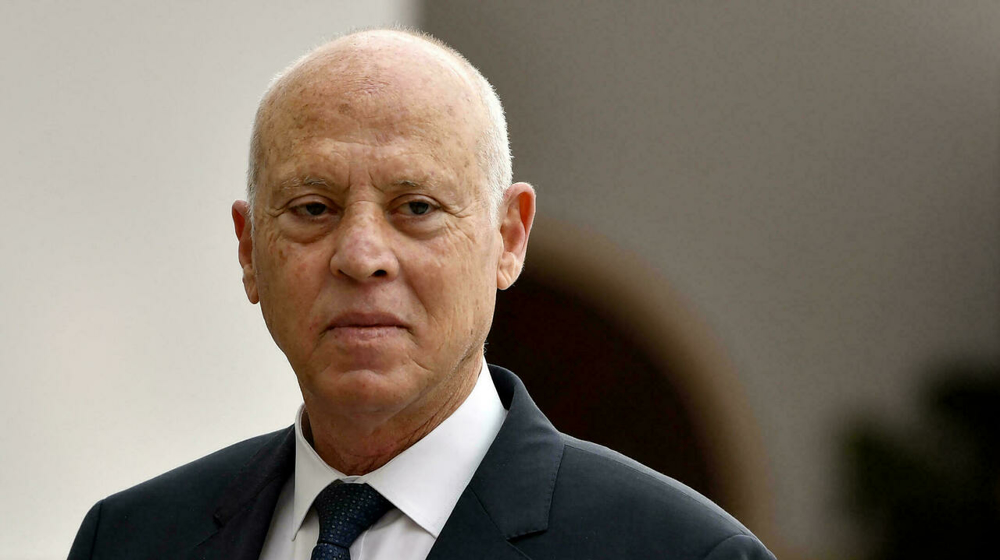
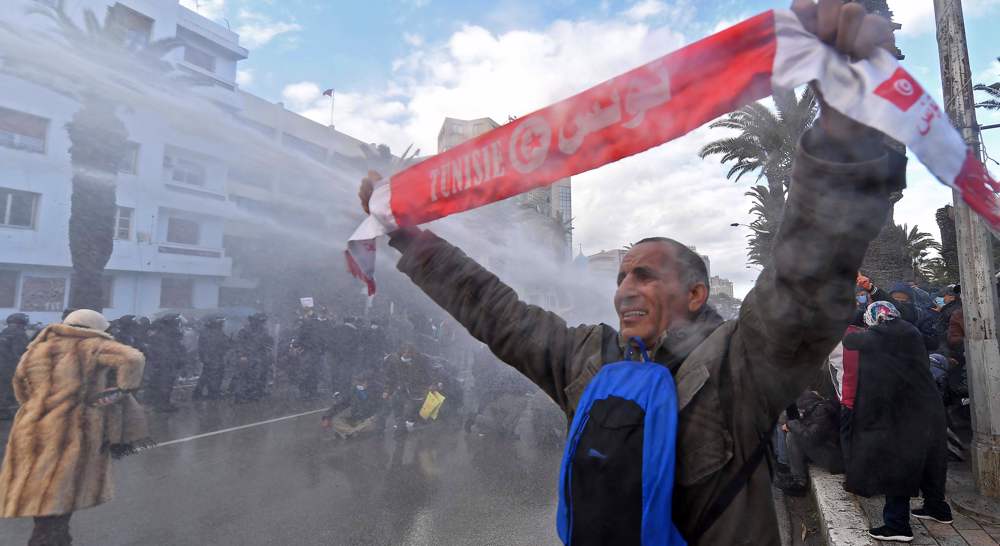
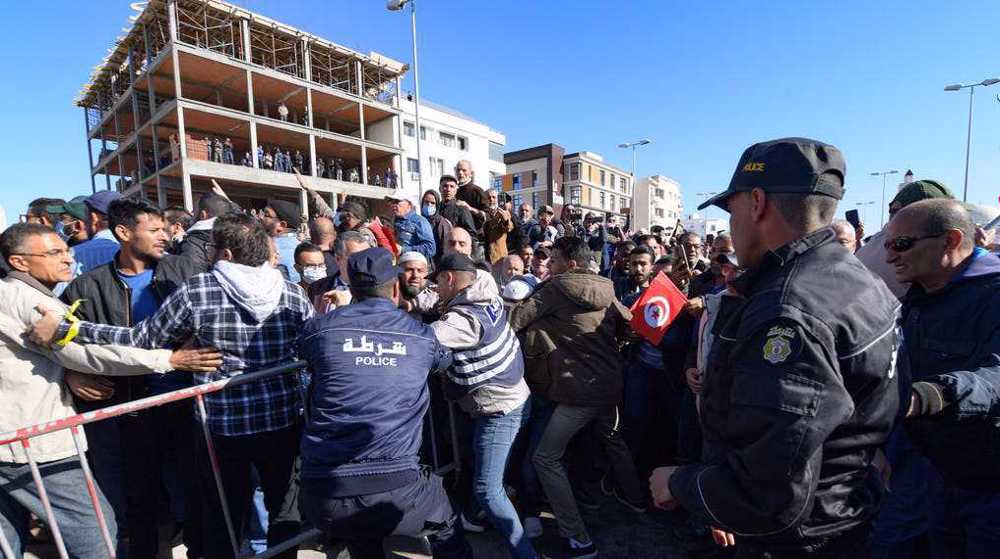






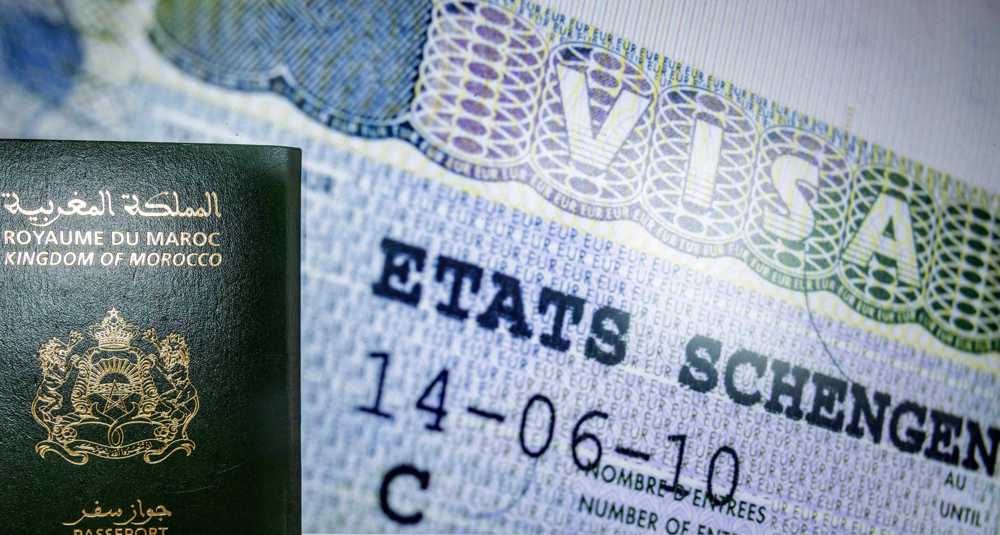
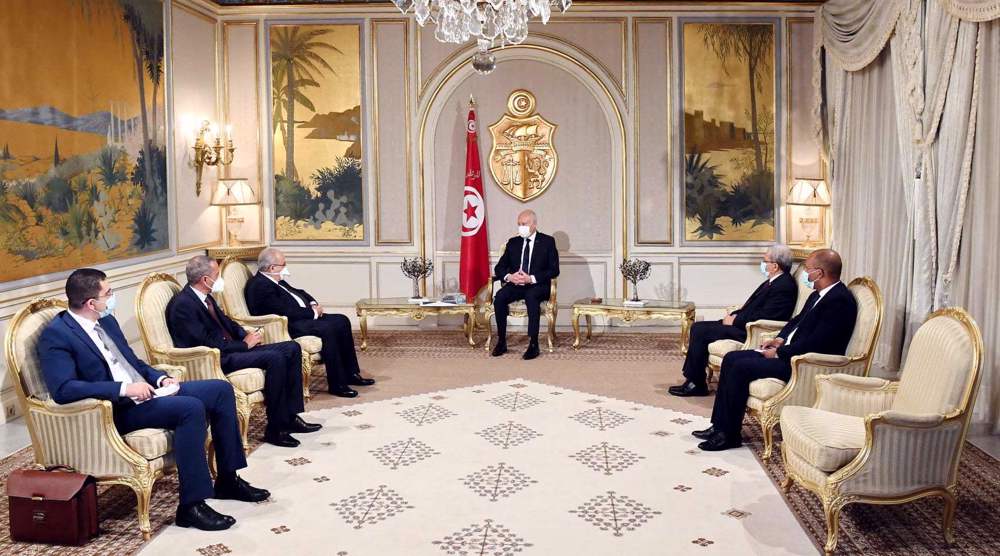
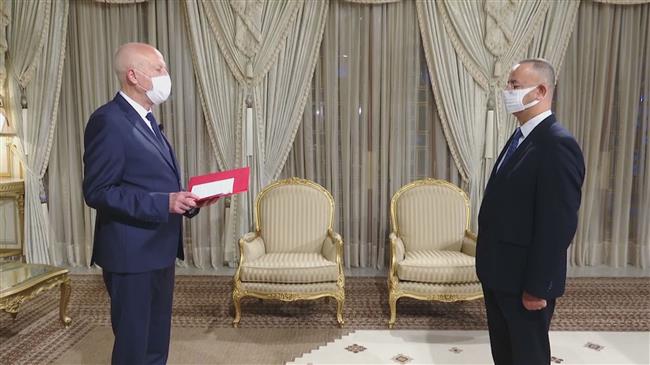
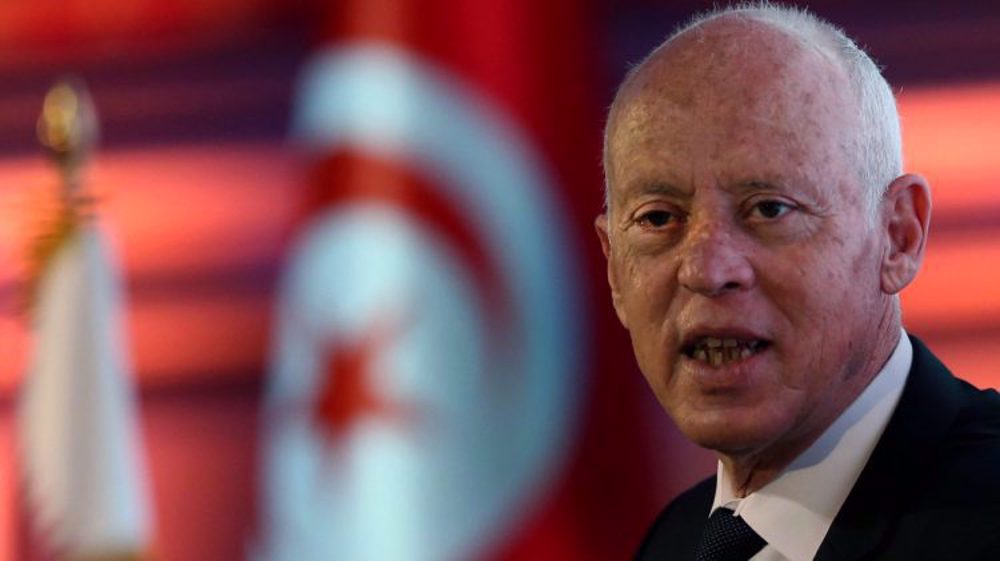
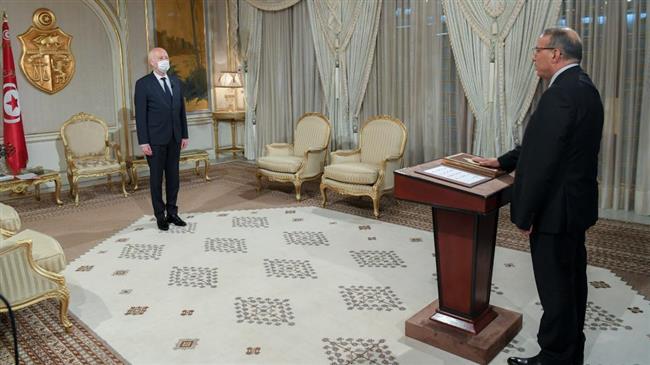
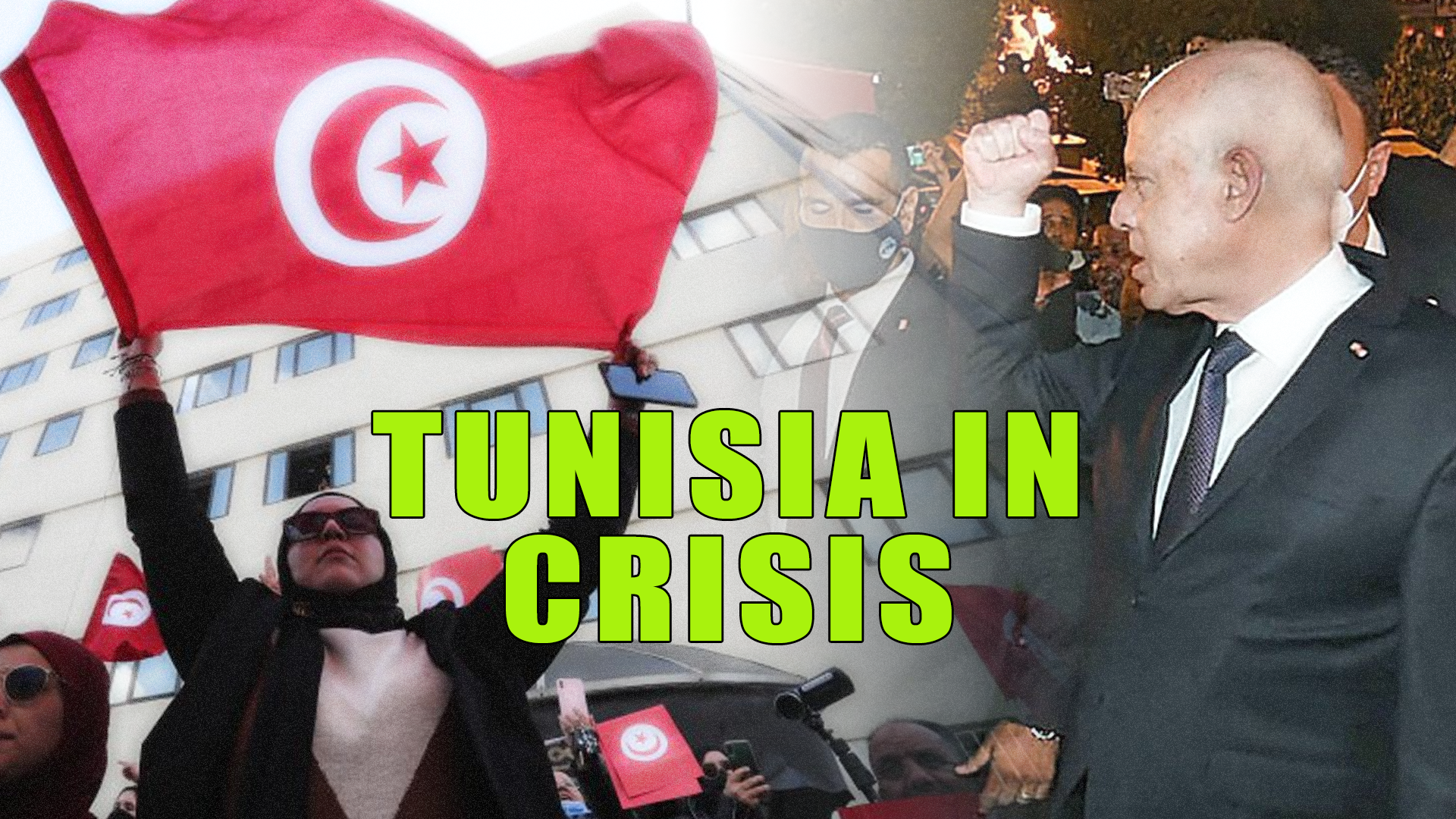

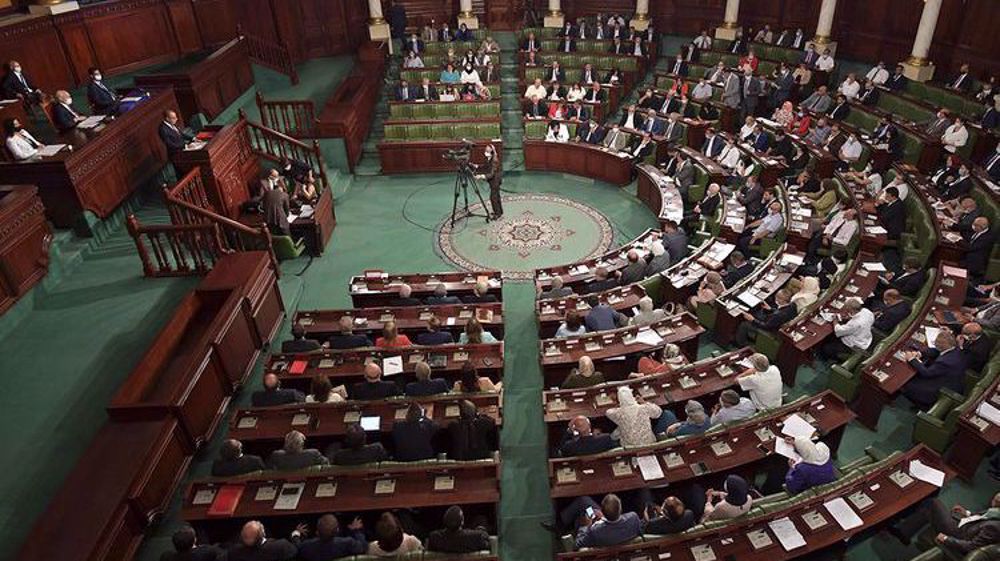
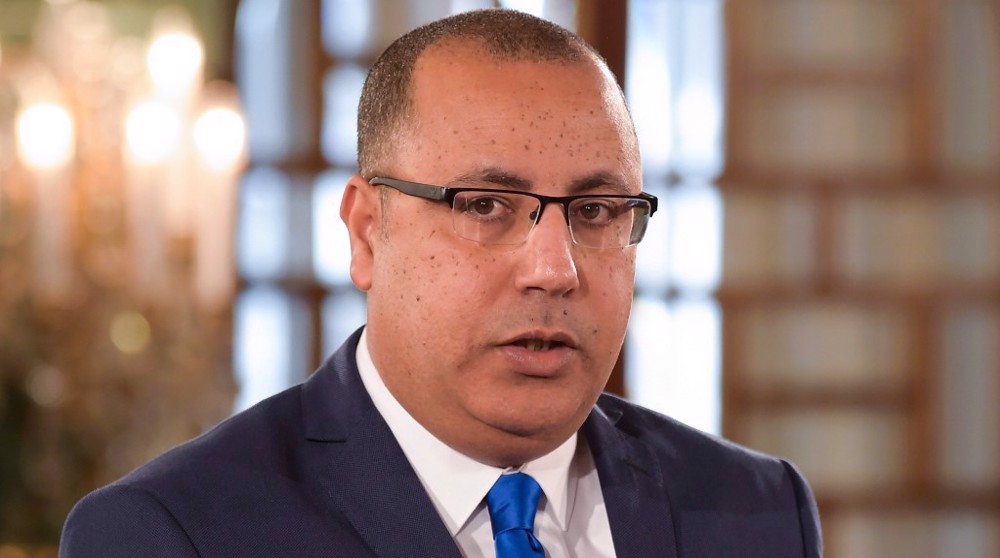

 This makes it easy to access the Press TV website
This makes it easy to access the Press TV website